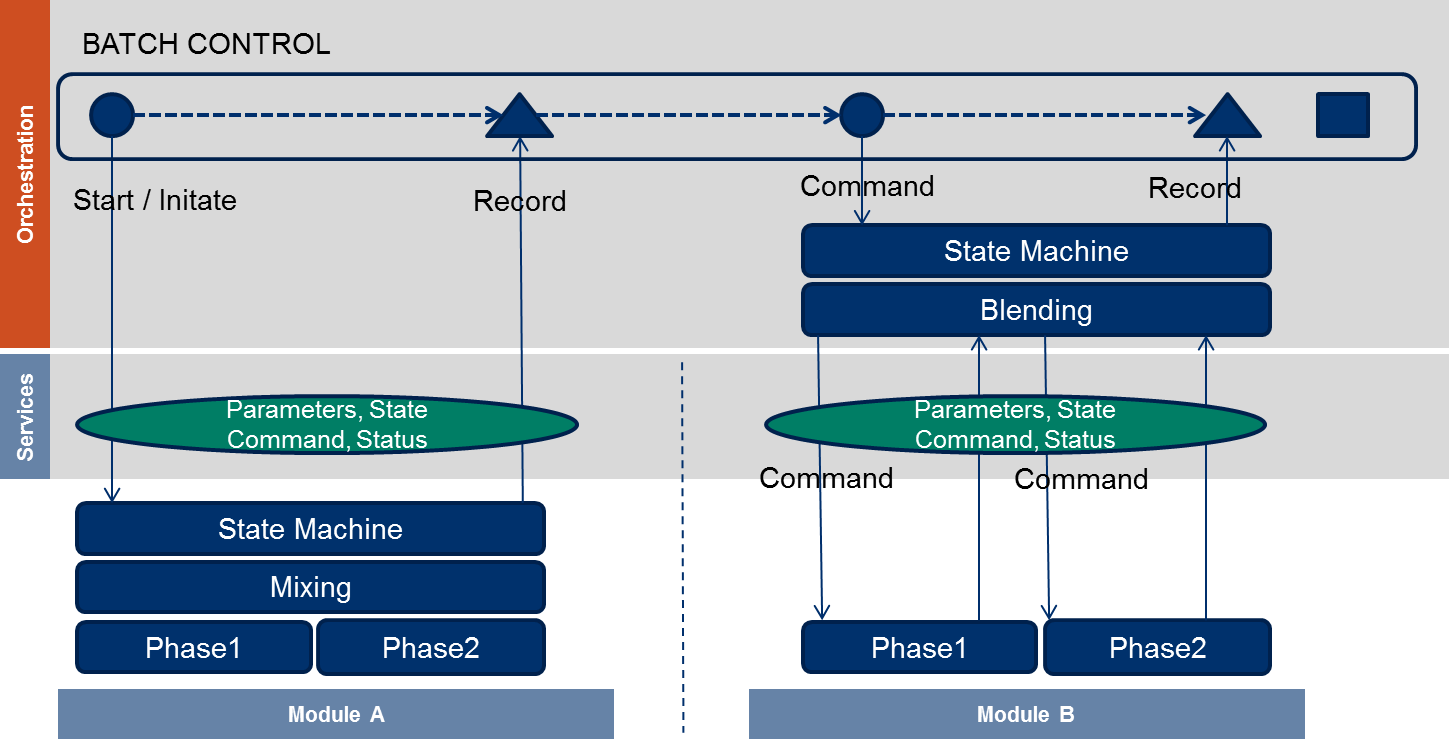After Hannover Messe 2017, NAMUR/ZVEI working groups for NAMUR MTP have been active and have worked on the State-based control concept for Process Orchestration. Or some would like to call it Process Co-ordination. In my earlier posts, we discussed in detail about the Modular Production concept and how NAMUR MTP will be key in realizing this. We also discussed the status of the NAMUR MTP working groups and have discussed the demonstrations during Hannover Messe.
But what is State-Based Control?
State-based control follows principles similar to Service-oriented architecture (SOA) from software design. A service is defined as a discrete unit of functionality that can be accessed, acted upon or updated to. The software industry has already achieved standards on this topic. And there also exists other working groups from The Open Group. Nevertheless, State-Based Control topic we are working on, as part of NAMUR MTP, is an adaptation for process industries.
Modular Automation
In relation to modular automation, a service can be defined as a discrete unit of process functions provided by a module or a subset of a module which can be accessed, acted upon or update to. To explain, a tank module which has its own process functions filling, emptying and heating will have
1) one service for each of its process functions, and
2) one service as a superset of all three services to monitor these three services and their dependencies.
Process orchestration
Now that the services are defined and established, how can the orchestration system access the information from the services? To make the information model behind each service standard, each service shall support a state machine. This state machine will be defined by the NAMUR/ZVEI working group for the NAMUR MTP concept. Which means the orchestration system can read MTP files. From this MTP file, it knows all the services (process functions), which the module provides and which states each service supports, in order to coordinate the production.
To summarize, a service in accordance with Modular Production is a unit of process functionality that can be
- accessed using a standard communication protocol and naming convention
- acted upon by based on the status of the state
- updated to by writing command and parameters

The future role of a “control” system?
Where to place the traditional control system in this concept? It gets the role of an “Orchestrator”, provided the system is open to technology changes and complies with market-inspired standards such as MTP. But does this system need the control functions as before? Yes, when talking about an orchestration system for Modular production, we are basically talking about a Batch system. In which a recipe procedure is executed by a Batch controller. Here let’s say the orchestration system will choreograph an “orchestration” procedure. Additionally to fulfill other existing industry requirements like the audit trail, alarm management etc., the future orchestration system should include all basic functionalities of the present control system.
We have been working on our modular concept through module based engineering and will enhance its functions to support modular production. In ACHEMA 2018, we aim to present our prototype solution for modular production.
If you are interested in news about Process orchestration, NAMUR MTP or Modular Automation, follow this blog. Any questions or requirements? Leave a comment.




